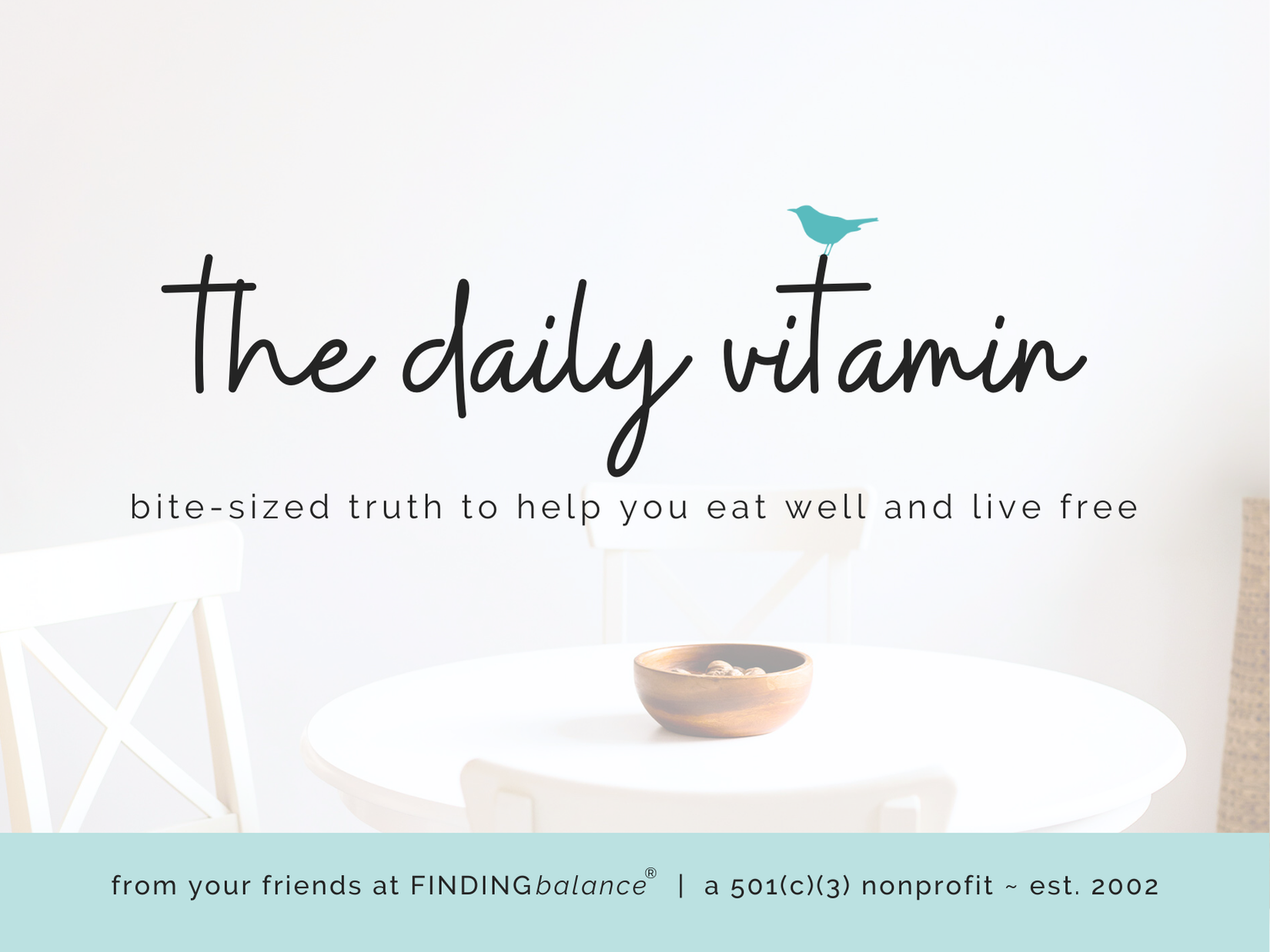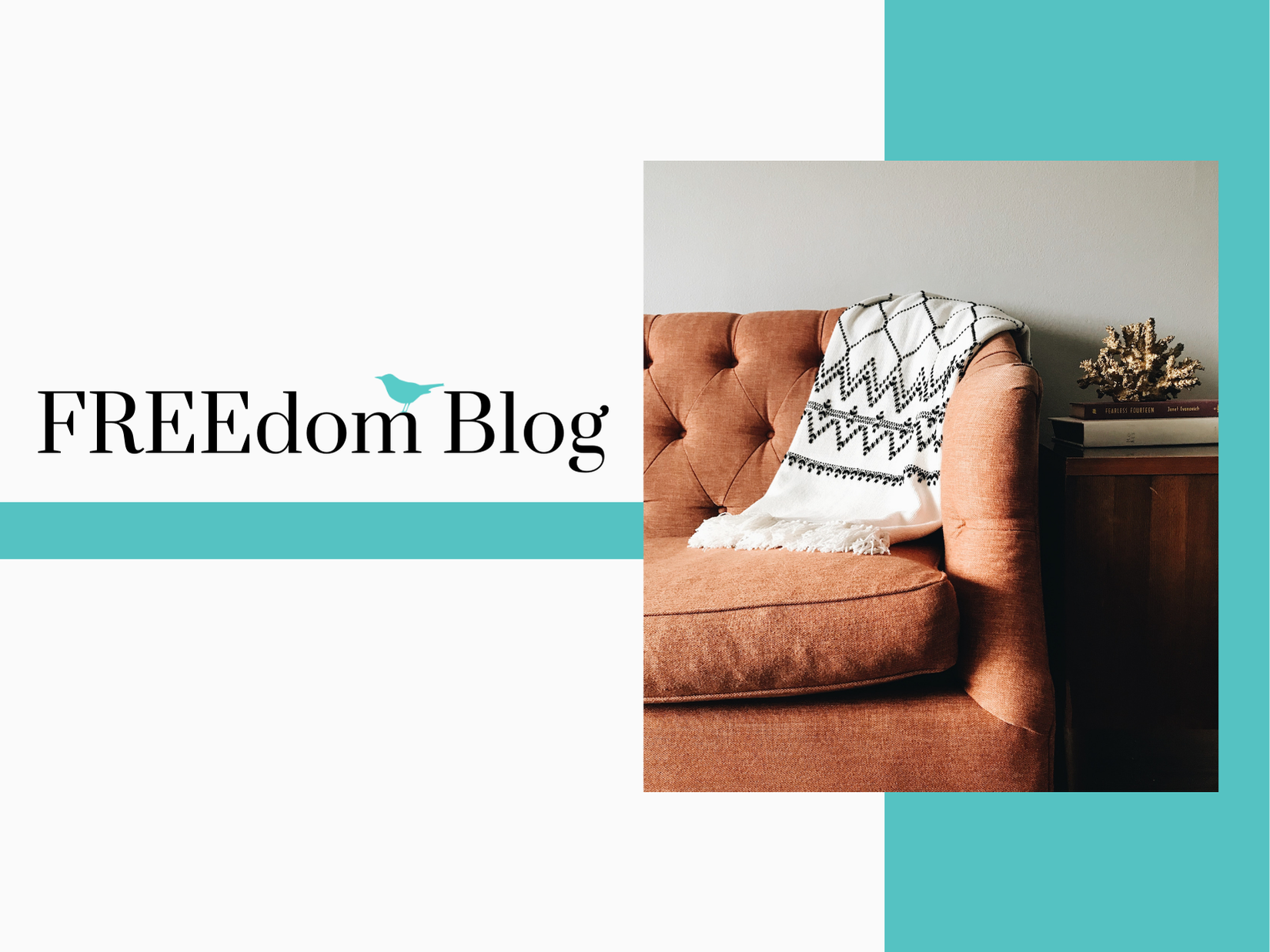Helping women find Jesus
in the middle of their struggles with eating disorders and other food and body image challenges.

OUR MISSION
FINDINGbalance exists to help women find Jesus in the middle of their struggles with eating disorders and other food and body image issues.
OUR VISION
To create safe spaces for women to walk toward freedom in Christ-centered community resulting in a Kingdom impact and cultural shift.
OUR KEY VERSE
“It is for freedom that Christ has set us free. Stand firm, then, and do not let yourselves be burdened again by a yoke of slavery.”
Galatians 5:1 (NIV)
Unsure if food and body struggles are affecting you? Take a moment to check-in.
FINDINGbalance is a Christ-centered 501(c)(3) nonprofit ministry helping women find freedom worldwide.
When you partner with FINDINGbalance, you’re making a Kingdom impact and cultural shift. Help us create a safe space for women to walk toward freedom in our Christ-centered community.
You can experience freedom through God’s grace, mercy, and love.
If controlling food, exercise, your body, or how others perceive you has become a coping mechanism in your life, we invite you on a journey to walk with Jesus together to:
uproot lies and replace them with biblical truth,
experience that you are not alone,
and learn ways to safely deal with sadness, grief, anxiety, and shame so you can live the abundant life you were created for.
Based on scripture, we believe Jesus wants you to:
Know that you can come as you are, welcomed and accepted, no matter your size or struggle.
Move from isolation into a safe, Christ-centered space where you can truly belong.
Experience His joy in community and sense that He is with you and for you, even in the middle of the struggle.
Step fully into His purpose for you right now, just as you are… you don’t need to “get it together” first.
Carry this freedom and truth with grace, so others can know it, too.
These women were set free because they found Jesus in the middle of their struggles with food and body image through FINDINGbalance.
Our Resources
-

The Daily Vitamin eDevo
Need some daily inspiration for freedom? The Daily Vitamin eDevotional delivers bite-size truth to your inbox 5 days a week to help you eat well and live free.
-

Old School Food Freedom Podcast
Replace the old soundtrack of cultural lies with biblical truth by kickin’ it as old school as it gets with how God created us to live: free from dieting, food rules, and body shame.
-

FREEdom Blog
Writers from across the world, of all ages, ED experiences, recovery experiences, and life experiences share about enriching your relationship with God while encouraging you in your walk to FREEdom.
-

Community
Unhealthy habits thrive in isolation. Healthy community heals shame and enhances recovery and wellness efforts. With proper care, guidance, and with the support of healthy community, individuals can fully recover from bondage to eating issues.
-

Christian Treatment Finder
Whether you’re seeking faith-based care for yourself or a loved one, our Christian Treatment Finder can connect you to Christian providers with a Kingdom campaign against eating disorders and disordered eating.
-

Lasting Freedom Online Course
Our self-paced Lasting Freedom curriculum offers a Christ-centered, non-diet approach to working through false beliefs about food and weight so you can live free from disordered eating and negative body image issues.
Jill Found a New Chapter of Healing Through FINDINGbalance
“In my 30-year struggle with an eating disorder and disordered eating, I have finally begun making real progress in my recovery since coming to FINDINGbalance. I am learning to recognize and let go of the detrimental lies of the enemy that I have blindly believed for years. Thank you, FINDINGbalance, for your life-saving and life-giving ministry. Your work for God's Kingdom matters tremendously!”
- Jill Palmer, Prayer Group Participant & Donor
Nicole’s Life Transformed Through Christ-Centered Support
“FINDINGbalance has always had a special place in my heart. In 2019, when I started counseling with an eating disorder (ED) nutritionist, they were the first ED group she told me about. I have loved and followed them ever since. The daily devotions, prayer groups, and podcast are so life-giving and full of hope. I’ve gotten to know a few of them along the way and call them friends; they are all caring, amazing people with purpose and passion to help those in need. I can’t even express how much they’ve helped me!”
- Nicole Hopkins, Prayer Group & Lasting Freedom Participant
Through Prayer, Marissa Experienced the Safety of God’s Community
“Prayer is very close to my heart. It’s a time to share the hard stuff in our lives and be vulnerable in a safe place. The women who run the prayer groups are loving, kind, caring, and compassionate, and they love Jesus! Thank you, FINDINGbalance, for moving the Kingdom forward and giving God the glory and praise!”
- Marissa Menth, Prayer Group Participant & Guest Blogger













